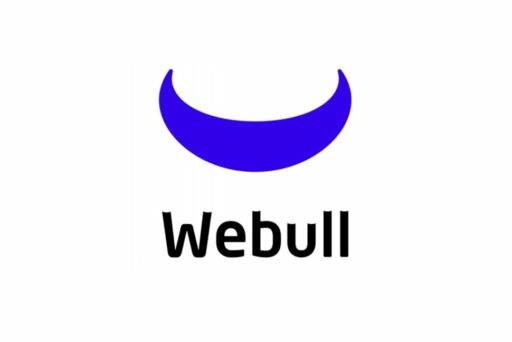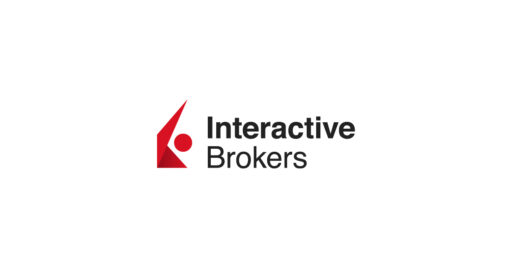In this Webull vs Interactive Brokers review, we’ll compare and contrast the two online investing platforms by looking at their brokerage trading account offerings, safety, client service, benefits and risks.
If you want to invest as an expat or high-net-worth individual, which is what i specialize in, you can email me (advice@adamfayed.com) or use WhatsApp (+44-7393-450-837).
Table of Contents
Interactive Brokers vs Webull Review: Which is better?
It is important to consider a number of aspects, such as fees, user-friendliness, available features, and compatibility with various trader profiles, when comparing Webull vs Interactive Brokers.
- How Easy It Is to Use: Many people, especially newcomers, find the Webull online investment firm to be easier to use. Newer investors interested in equities, ETFs, options, and cryptocurrency will find it appropriate due to its well-designed mobile app and streamlined desktop workstation. Contrarily, Interactive Brokers is known for its expert online trade platform and extensive educational resources, which are aimed primarily at seasoned traders and professionals.
- Fees: You can trade stocks and ETFs commission-free with both Interactive Brokers and Webull, and their fee regimes are rather similar. Webull does not disclose its fees for trading penny stocks, yet Interactive Brokers charges zero dollars each trade. They both have modest non-trading fees and generally comparable charge regimes.
- User Base: Bonds, mutual funds, futures, foreign exchange, cryptocurrencies, and managed portfolios are just a few of the global financial markets offered by Interactive Brokers, which targets intermediate to professional investors. It has two stages, Lite and Pro, so it can accommodate traders of different skill levels. Webull, on the other hand, is great for beginner to intermediate traders who want to trade without commissions. Stocks, ETFs, options, and cryptocurrencies can all be easily customized on this platform.
- Background in Trading: Professionals choose Interactive Brokers because of its competitive margin rates, top-notch trade executions, and institutional-grade desktop trading platform. Newer investors and those seeking an easy-to-use platform across several asset classes would find Webull more suitable due to its user-friendly software and well-designed mobile app.
Is Webull safe? What about Interactive Brokers?

There are two reputable online investment brokers that are known for their security: Webull and Interactive Brokers.
Protecting your assets and personal information is a first priority at Webull. They are backed by respected regulators and the insurance of world-class companies. With Webull’s membership in the Securities Investors Protection Corporation (SIPC), investors may rest certain that their money is safe up to $500,000 in securities and cash, with a limit of $250,000 for cash holdings.
Because of its institutional-grade desktop platform, high-quality trade executions, and competitive margin rates, Interactive Brokers is also considered a secure trading platform provider and is chosen by professionals. Interactive Brokers is a broker-dealer that is registered with the SEC and is also affiliated with FINRA, the New York Stock Exchange, and NASDAQ, among other regulatory authorities.
Insurance, regulatory compliance, and privacy safeguards are just a few of the many levels of protection that Webull and Interactive Brokers provide.
Webull vs Interactive Brokers Account Types Comparison
You can open a Traditional, Roth, or Rollover IRA with Interactive Brokers, and they also give a wide range of other account kinds, including individual, joint, trust, and corporate accounts. You can invest in securities with leverage through the online brokerage company’s margin account option.
Interactive Brokers provides a broad array of investment products for retirement accounts, including stocks, forex, futures, metals, bonds, and cryptocurrencies. In addition to all the options available within an IRA, investors can also open a paper trading account to practice trading without taking any financial risks.
Customers can open brokerage accounts either alone or in a joint account through Webull. It also provides options for tax-advantaged retirement savings, including Traditional, Roth, and Rollover IRAs. With Webull, investors can borrow money to buy assets, much like with Interactive Brokers.
Although a paper trading account is not available with Webull, customers can practice trades using the virtual trading simulator. The platform’s retirement accounts provide a variety of investing opportunities inside the framework of an IRA, including the ability to trade stocks and ETFs. In addition, retirement accounts can utilize the platform’s margin trading capabilities, which have yearly rates ranging from 5.49 percent to 9.49 percent, depending on the account amount.
It’s worth noting that either broker can open a standard or Roth IRA account for you, on top of individual or joint brokerage accounts. They also both provide margin accounts, which allow investors to leverage their securities holdings. While Webull does not provide any trading account types, Interactive Brokers stands out by providing trust, corporate, and paper trading accounts.
Webull Cash Account vs Interactive brokers
If the Webull cash account worth is more than $2,000, you will still not be able to use leverage and can only trade with settled money. Long calls, long puts, covered calls, and cash-secured puts are the four options strategies that are offered. Ideal for those just starting out in the market or those who prefer not to use leverage.
Similar to Webull’s cash account structure, Interactive Brokers cash account permits trading only with settled money. It’s designed with newcomers and those who prefer not to use leverage in mind.
Webull vs Interactive Brokers Margin Account
With a Webull margin account, you can:
- Take advantage of leverage, which means you can trade with more money than you really have in your account.
- Up to four times the buying power during a day’s trade and two times the buying power overnight are available, depending on the account balance.
- It permits the short sale of qualifying securities once the account value exceeds the $2,000 level.
- Access to an extensive range of option trading strategies is provided to users.
It should be noted that margin accounts have additional risks, as the loss could surpass the original investment.
For Interactive Brokers margin account:
- Users are able to trade using funds that exceed their account balance thanks to Interactive Brokers margin account’s facilitation of leverage.
- Stocks, currency, futures, commodities, bonds, and crypto are just some of the financial items that are accessible.
- Margin accounts are designed for experienced traders and professionals who want to increase their leverage.
- There is an increased danger of losing more than what you initially invested because of the additional risk.
Interactive Brokers vs Webull Fees

For investors who are concerned about fees, Webull offers a cost-effective solution: commission-free trading for stocks, ETFs, cryptocurrency, and US-listed Webull options.
But for some options deals, there is a $0.55 contract fee, and there may be other fees associated with exchanges and regulations. Moreover, customers can engage in margin trading with Webull at interest rates ranging from 9.49% for balances below $25,000 to 5.49% for balances greater than $3 million.
In line with Webull’s cost structure, Interactive Brokers charges $0 per trade for standard stock trades. On the other hand, compared to Webull, Interactive Brokers charges more for option contracts.
Interactive Brokers and Webull Customer Service Options for Beginners
While Webull does have a comprehensive Frequently Asked Questions (FAQ) section and offers phone customer assistance during trading hours, wait times tend to be longer. As an alternative, Interactive Brokers (IBKR) is a premium investment platform that provides access to various assets, international markets, trading platforms, and tools for both novice and seasoned traders.
Which brokerage firm offers better customer support?
When it comes to customer care, Interactive Brokers is way better than Webull. Live chat, email, and phone help are available 24/7 at Interactive Brokers, a company well-known for its comprehensive support services. To help users go around the site and make educated investing decisions, the firm provides a wealth of training materials and a knowledge base.
On the other hand, Webull does have phone customer care available during trade hours and a comprehensive FAQ section, although people have complained about significant delays in getting their questions answered.
Webull and Interactive Brokers both provide high-quality research and education, but Interactive Brokers really shines because of the vast number of markets and products it offers. So, if customer service is your first priority, Interactive Brokers is the better alternative than Webull.
Which online trading platform is better for newbies?
Webull is great for novice to intermediate traders because it has a trading platform that’s easier to use and is configurable, designed for stocks, ETFs, and options. Stocks, ETFs, options, cryptocurrencies, and day trading are just a few of the asset classes covered by the Webull workstation’s customizable templates.
With its adaptable widget structure, you can easily add or remove widgets that display various types of information, like news, basics, and settings. With the advanced order screen, you can do things like execute trades straight from a chart or use contingency Webull trading.
Although Webull is great for beginners and intermediate traders looking for a zero-commission platform, IBKR provides advanced traders with an unrivaled selection of tools and is recognized as the Best Online Broker and Best Charting Platform. Professionals love Interactive Brokers because of their competitive margin rates, high-quality trade executions, and institutional-grade desktop trading platform.
Interactive Brokers is famous for its desktop trading interface, which is fit for institutional traders but could be intimidating to newcomers.
The user experience on Interactive Brokers’ platform might not be as smooth as on Webull’s, despite the fact that it is comprehensive. But IBKR has come a long way in making the site easier to navigate. Consistent functionality is available to users of IBKR across desktop, online, and mobile versions that can be downloaded.
Overall, Interactive Brokers offers a robust trading platform that is ideal for professionals and has somewhat better customer assistance than Webull. On the other hand, Webull is well-liked by investors of all experience levels because of its intuitive design. In light of these considerations, the user-friendliness and simplicity of the Webull platform make it the clear winner when it comes to newcomers.
Still, trading expertise, personal taste, and unique requirements should be considered while deciding between the two.
What are the investment minimums for Webull and Interactive Brokers?

Interactive Brokers requires a $10,000 (or comparable non-USD) deposit at the outset, which is deducted from commissions for the first eight months. Interactive Brokers, on the other hand, offers a Lite version that doesn’t require a minimum deposit.
Contrarily, users are free to deposit any amount they like with Webull because there is no minimum deposit requirement. Plus, there are no deposit fees with Webull, so consumers can put in as little or as much as they want.
What are the pros and cons of using Interactive Brokers for trading?
Positive aspects
- High-quality trade executions, competitive margin rates, and an institutional-grade desktop trading platform.
- Provides entry to a wide variety of investment vehicles, including managed portfolios, mutual funds, stocks, futures, and bonds.
- Invest in bonds, mutual funds, futures, foreign exchange, cryptocurrencies, and managed portfolios with this versatile entry point.
The downsides
- The interface might be more clumsy than Webull’s.
- Despite offering better instructional resources, it might not be the best option for those who are just starting their trading journey.
What are the pros and cons of using Webull for trading?
Benefits of Webull
- Trade US stocks, ETFs, and options on a user-friendly interface with zero commissions.
- Quickly and easily create an account online.
- Feature a minimalist PC workspace and an attractive mobile app.
- Serves novice and intermediate traders with a flexible platform for buying and selling stocks, ETFs, and options.
Drawbacks
- Lacking prominent asset classes like bonds and mutual funds, the product portfolio is limited.
- Poor phone assistance without live chat feature.
Pained by financial indecision? Want to invest with Adam?

Adam is an internationally recognised author on financial matters, with over 760.2 million answer views on Quora.com, a widely sold book on Amazon, and a contributor on Forbes.



